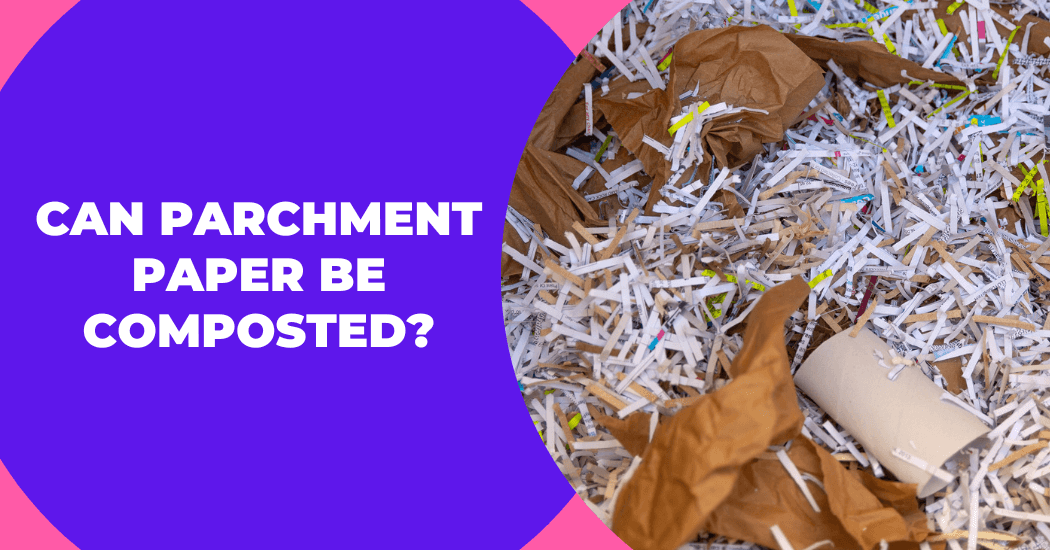Can Parchment Paper Be Composted?
When talking about sustainability, nearly everyone focuses on recycling plastic, glass and aluminum. However, what most people don’t consider is the kind of paper products that can often be found in our kitchens such as parchment paper.
Parchment paper is a great tool for baking and food preparation but did you know that with the right conditions, it can also be composted?
In this blog post, we’ll look at why parchment paper has recently become a more sustainable option talked about by eco-friendly communities alongside other sustainable kitchen alternatives.
We’ll explore if and how to properly compost parchment paper so you too can start taking simple steps toward making your kitchen more Earth-friendly!
Can Parchment Paper Be Composted?
The answer is yes! Custom Parchment paper can be composted in an industrial composting environment or with a home composting system. To do this, parchment paper must be organic and unbleached. It cannot contain any non-biodegradable elements like plastic or wax as these could contaminate the surrounding soil.
Composting parchment paper helps keep it out of landfills and can be used to enrich the soil in your garden or outdoor area.
To compost parchment paper, it should be torn into small pieces and mixed with other organic materials such as leaves, grass clippings and food scraps. The parchment paper needs to be broken down until it is barely visible so that the microorganisms present in the compost pile can break it down.
When composting parchment paper, it’s important to note that the paper must be free of any chemical coatings or synthetic waxes for it to break down properly. If the parchment paper has been treated with PFOA or silicone, it is not compostable and should be disposed of in a regular waste bin.
By composting parchment paper, you can reduce the amount of waste that ends up in landfills and help create nutrient-rich soil for your garden. It is a small step towards making your kitchen more sustainable and earth-friendly!
Parchment paper may be a small part of our everyday lives but it can have a large impact on our environment when we choose to compost it correctly.
Whether you’re an avid baker, a cook in training or just a person looking for more sustainable kitchen alternatives, composting parchment paper is one of the simplest and most impactful steps you can take towards making your kitchen a greener place.
So why not give it a try? Let’s make sure that our kitchens are as eco-friendly as possible!
Relevant Information: Is Deli Paper The Same As Parchment Paper?
How to compost parchment paper effectively?
Composting parchment paper can seem a bit daunting at first but it’s quite easy and doesn’t require much effort.
Here are the steps you should follow to compost parchment paper correctly:
- Make sure your parchment paper is unbleached and organic, meaning it does not contain any non-biodegradable elements like plastic or wax that could contaminate the soil.
- Rip up the parchment paper into small pieces and mix it in with other organic materials like leaves, grass clippings and food scraps.
- Break down the parchment paper until it is barely visible so that microorganisms present in the compost pile can break it down properly.
- Make sure the parchment paper is free of any chemical coatings or synthetic waxes for it to break down correctly in the compost pile.
- Once you are done composting, spread the nutrient-rich soil in your garden or outdoor area to fertilize and enrich the soil!
Benefits of composting parchment paper
Composting parchment paper has many benefits to the environment and your kitchen.
Here are just some of the advantages:
- Reduces the amount of waste sent to landfills.
- Helps create nutrient-rich soil for gardens and outdoor areas.
- Creates a more sustainable kitchen environment.
- Parchment paper can be safely reused and recycled.
- Helps reduce the use of plastic products in the kitchen.
- Supports eco-friendly communities and sustainable living.
- Contributes to a healthier lifestyle.
Alternatives to composting
Here are some alternatives to composting parchment paper that can help make your kitchen more sustainable:
- Recycling options for parchment paper:
Parchment paper can be recycled just like any other type of paper product. It should be separated from other kitchen waste and placed into the recycling bin. Recycled parchment paper is often converted into new products such as packaging materials, office supplies and even clothing!
- Reusable alternatives and waste reduction strategies:
To reduce the amount of parchment paper used in your kitchen, consider trading it for reusable products such as silicone baking mats or beeswax wraps. These can be reused again and again and help to drastically reduce the amount of waste generated from food preparation.
Another way to make your kitchen more sustainable is to try composting other organic materials like vegetable scraps, eggshells, coffee grounds and tea bags. This can help reduce your kitchen waste and make a positive impact on the environment.
Also Read: Do I Need To Grease Parchment Paper?
Final Words
Yes, parchment paper can be composted. However, before it’s added to your compost bin, it needs to be cleaned of any non-organic materials like grease, oil and food scraps. Doing so isn’t hard if you follow a few tips and use the right cleaning techniques.
Once it’s clean, parchment paper can make a great addition to your compost pile, as it’ll allow organic matter to break down much quicker and provide nutrients for plants growing in your garden.
Ultimately, the decision of whether or not you should compost parchment paper is up to you – if you’re looking for an easy way to reduce your waste output without sacrificing convenience or quality, then it might be the right choice for you!
